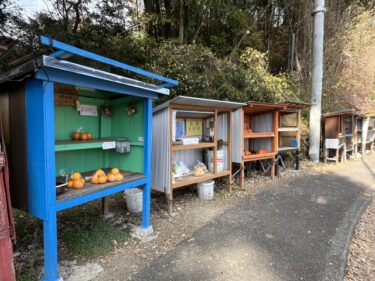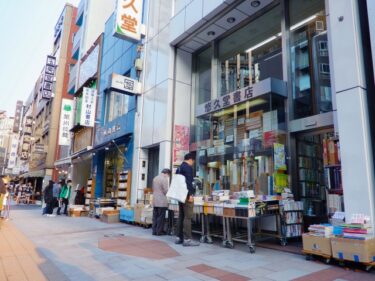Shopping and accessing everyday services in Japan may feel overwhelming for newcomers, but once you get accustomed to the system, it becomes convenient and efficient. From finding groceries at local supermarkets to understanding how to use Japan’s comprehensive delivery services, this guide provides useful tips on navigating the shopping experience and using services like banking, postal services, and utilities. Whether you are settling into daily life or just starting out, these insights will help make your time in Japan easier and more enjoyable.
Shopping in Japan
Shopping in Japan is generally straightforward, but foreigners may encounter some challenges, especially if they don’t speak Japanese or are unfamiliar with certain shopping practices. Here are the key aspects and tips for navigating shopping as a foreigner in Japan.
Types of Stores
- Convenience Stores (コンビニ / Konbini): These are ubiquitous in Japan and are incredibly convenient for everyday purchases, offering items such as food, drinks, toiletries, and even payment services.
- Supermarkets (スーパー / Suupaa): For groceries and household goods, supermarkets are your go-to. Stores like Aeon, Seiyu, and Life are popular options.
- 100-Yen Stores (100円ショップ / Hyakuen Shoppu): These are budget-friendly stores where everything is sold for ¥100 (plus tax). You can find items for the home, stationery, and basic food products. Popular chains include Daiso, Can★Do, and Seria.
You can find most of the everyday items you need at 100-Yen Stores.
- Department Stores (デパート / Depāto): Department stores offer higher-end goods, from clothing to electronics. They often have basement floors (デパ地下 / Depachika) with gourmet foods. Famous chains include Takashimaya, Mitsukoshi, and Isetan.
Common Challenges for Foreigners
- Language Barrier: Most product labels and signage are in Japanese, which can make it difficult to find specific items. Although many large retailers in cities like Tokyo or Osaka may offer some English-language support, it’s still good to know a few basic Japanese phrases.
- Payment Methods: Japan is still very cash-based compared to some countries. While credit cards are becoming more accepted, it’s best to carry cash, especially in smaller shops or rural areas.
- Point Cards: Many stores offer point cards (ポイントカード), which allow you to accumulate points for discounts or gifts. However, these systems are usually explained in Japanese, which can be confusing for foreigners.
Useful Resource: Japan Guide’s Shopping in Japan provides a detailed overview of different shopping types, with tips on what to expect.
Online Shopping
Online shopping is a convenient option, especially if you want to avoid language barriers in physical stores. The most popular online platforms in Japan include:
- Amazon Japan: Offers a wide range of products, including groceries, books, and electronics. Amazon Japan supports multiple languages and international credit cards.
- Rakuten: One of the largest e-commerce platforms in Japan, offering everything from groceries to clothing. Some sellers on Rakuten provide international shipping, though the site itself is mostly in Japanese.
- Mercari: A popular app for buying and selling second-hand goods, including clothes, electronics, and furniture.
置き配 (okihai)
In online shopping, “置き配” (okihai) refers to a delivery method where packages are left at a designated location outside the recipient’s home, such as by the front door or in a specified drop-off area. This method is convenient for customers who might not be home during delivery hours, as it allows them to receive their packages without direct interaction with the delivery person.
To ensure safety and security, many people use宅配ボックス (宅配ボックス, or delivery lockers). These are secure, lockable boxes placed outside homes or in apartment buildings where couriers can leave packages. The recipient can then retrieve the package later using a key, code, or app. Delivery lockers are especially useful for protecting parcels from theft or bad weather.
In some cases, online shoppers can specify their preferred location for “okihai” or delivery locker use when placing an order. This method is growing in popularity for its convenience, as it eliminates the need for redelivery attempts.
Challenges:
- Language and Registration: Some online shopping platforms, like Rakuten or Yahoo! Shopping, are mostly in Japanese. Using tools like Google Translate can help, but some knowledge of Japanese is helpful.
- Delivery: Most deliveries are done by Yamato Transport (ヤマト運輸) or Japan Post. If you miss a delivery, you can reschedule using a slip left in your mailbox, though you may need assistance with the Japanese website or app.
Useful Resource: Amazon Japan offers multilingual support for foreign customers.
Services in Japan
Japan offers a variety of services that may differ from those in other countries. Here are some of the most essential services that foreigners need and how to navigate them.
Mobile and Internet
- Mobile Phone Plans: The main providers in Japan are Docomo, SoftBank, and au, but MVNOs like Rakuten Mobile or LINE Mobile offer cheaper, more flexible plans.
- Contract Challenges: Many mobile contracts are in Japanese and come with long-term commitments (2-3 years). Understanding the terms, cancellation policies, and data limits can be difficult without Japanese language skills.
- Prepaid SIM Cards: For those who do not want to commit to a contract, prepaid SIM cards are available at convenience stores or electronics shops like Bic Camera and Yodobashi Camera.
Internet Services
- For home internet, fiber-optic (光回線 / Hikari Kaisen) is the most common option, with providers like NTT, SoftBank, and au. The installation process can take up to a few weeks, so plan accordingly.
- For short-term stays, pocket Wi-Fi rental services are available, allowing for flexible, portable internet.
Useful Resource: Sakura Mobile offers English-language mobile and internet services specifically for foreigners.
Banking in Japan
Setting up a bank account in Japan can be a complex process, particularly for foreigners. Major banks include:
- Japan Post Bank (ゆうちょ銀行 / Yuucho Ginko): This is one of the easiest banks for foreigners to open an account at, and it has a large ATM network.
- Mitsubishi UFJ (MUFG), SMBC, and Mizuho are the other major banks, but their application processes might be more rigid for foreigners, especially if your Japanese is limited.
Challenges:
- Paperwork: Most banks require multiple documents such as a residence card, passport, and proof of employment. Paperwork is often in Japanese.
- Bank Cards: Some banks do not issue credit cards or international debit cards right away, which can be inconvenient for foreigners who need to make international purchases.
Useful Resource: Shinsei Bank, known for its foreigner-friendly services, offers support in English and is often recommended for expats.
Post Offices and Delivery Services
Post offices in Japan handle not only mail but also banking and bill payment services. Japan Post also offers international shipping services like EMS (Express Mail Service).
Challenges:
- Language Barrier: Some post offices in major cities have English-speaking staff, but smaller offices might not.
- Delivery Services: If you need to send or receive packages, services like Yamato Transport (Kuroneko) and Sagawa Express offer convenient domestic and international shipping options.
Important Tip: When you receive a delivery slip, you can use apps like Kuroneko Yamato to reschedule deliveries, though some Japanese language knowledge is helpful.
Useful Resource: Japan Post’s Guide offers information on mail, banking, and delivery services in English.
Bill Payments and Utilities
Bills for utilities like electricity, gas, water, and internet can be paid in several ways:
- Automatic Withdrawal: You can set up automatic payments from your bank account.
- Convenience Store Payment: Most utility bills can be paid at convenience stores. Take the bill to the cashier and they will process the payment for you.
Important Tip: Bills are typically due once a month. Late payments can result in your services being suspended, so it’s essential to stay on top of them.
Other Useful Services
Dry Cleaning and Laundry
- Dry Cleaners (クリーニング / Kurīningu) are common and handle everything from suits to delicate fabrics.
There are dry cleaning chain stores like Hakuyosha and White Kyubin. They are often located in storefronts or shopping malls.
- Coin Laundries (コインランドリー / Koin Randorii): These are helpful for foreigners living in apartments without washing machines.
You can dry your clothes for 100 yen per 10 minutes. There are washing machines and dryers. Since you usually need 100-yen coins, many places also have coin exchange machines.
Hair Salons
There is a well-known hair salon chain called 11Cut. You can get your hair cut there at an affordable price.
- Foreigners may face difficulties in finding hair salons that cater to non-Japanese hair types. However, in major cities like Tokyo and Osaka, there are salons that specialize in serving foreign clients.
- Booking an appointment can be done via websites like Hot Pepper Beauty, though some basic Japanese may be necessary.
If you can’t find the information you’re looking for, please send us a request through the contact form.
We will create articles based on the most frequently asked questions.
Our contact form is here.








